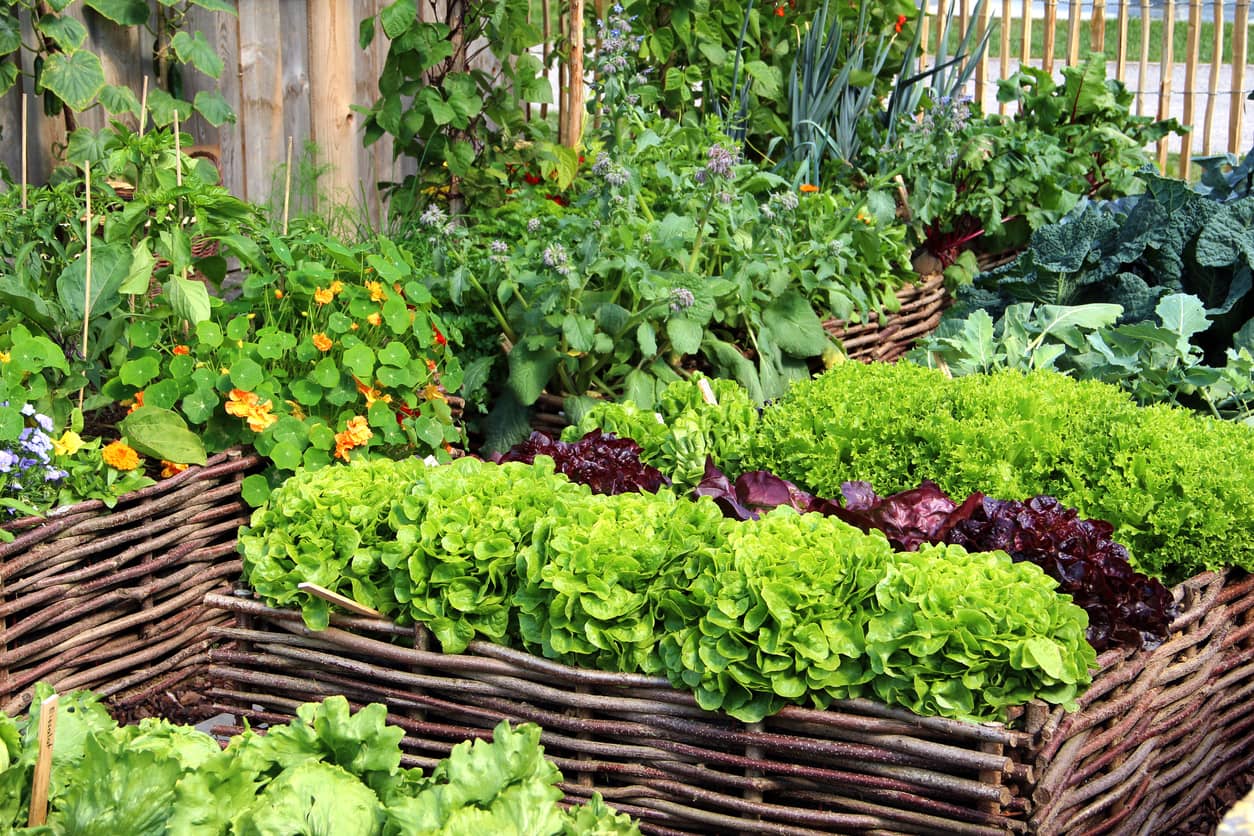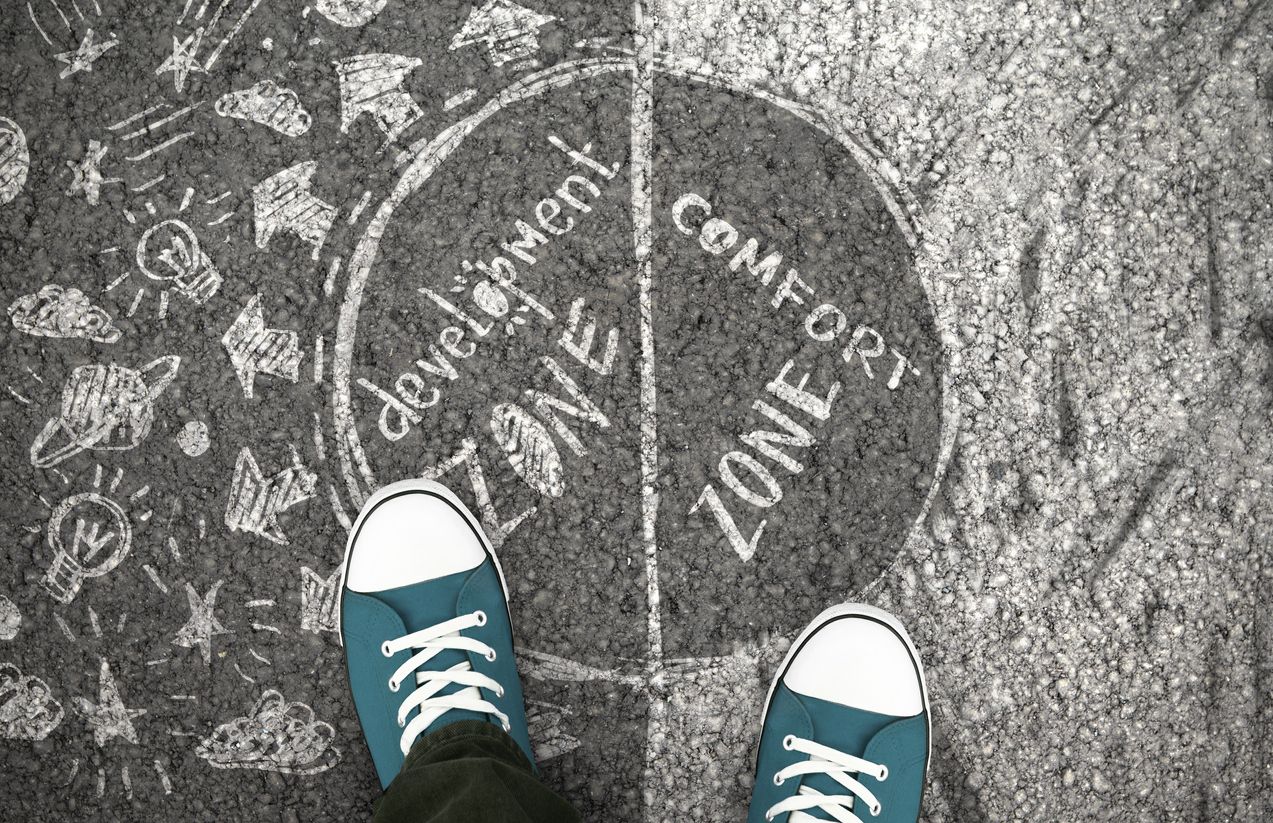Is the concept of minimalism a limiting framework? To me, minimalism appeared simply to be the denial of our desires.
Since our brains are built on the premise of more, better, and always transcending yesterday, the concept seemed like a trendy girdle to hold back the grand expressions of self-expression. At the very least, I viewed a minimalist life as boring because of my love affair with abundance, flow, variety, and beauty.
Estimated reading time: 4 minutes

Discovering the Joy of Simplicity and Minimal Living
Everything in my life has been orchestrated with broad, big strokes. When I cultivated my first vegetable garden, I didn’t experiment with a small patch; I rototilled and planted a 50” x 50” plot. Landscaping our first home was no different. Exercise, to me, is setting my gaze on running a marathon.
When my kids were young, I created extravagant birthday parties every year. Now that I'm a grandmother, I've transferred this fun to my granddaughters' playroom. (Take a peek in this blog on kindness.)
In my business, my mission has always driven me to expand its reach every day. This exuberance has been a norm for me and has given me tremendous pleasure.
Fast forward to the present.
All that I’ve grown in my life and business is abundant and delicious, returning a hundredfold. However, my circle has grown with each year. And every relationship in my life and business needs to be nurtured, managed, tended to, and cared for.
Now I want to enjoy the fruits of my efforts and focus—instead, I find myself running to keep up. Time constraints limit who I can connect with and what I can do daily. Although I have capable support, I’m still at the helm directing a giant ship with the changing waters.
My commitment and the necessary consistency to grow my business is relentless. My dilemma reminds me of what I’ve heard a client say, “Every day I have to decide who I’m going to disappoint.”
And that is not an outcome I desire, so I am rethinking minimalism.
Living a Minimalistic Lifestyle
Does minimalism eliminate choices and censure desires or does it distill down to what is most precious and useful in our lives?
Moment by moment, we decide what to allow in our life, even if we're not conscious of the choice.
With minimalism, we are intentional and only allow something into our lives IF it is worthy. We discern what will receive our attention, care, and share our personal corner of the universe.
For example, last week, a young local man at Northwestern Mutual contacted me on LinkedIn and wanted to get acquainted with me and my business. Initially, it sounded like a great idea since I love meeting new people.
However, when things calmed that night, it dawned on me—that forty-five minutes had a dozen other uses far more nurturing and valuable to my mission and priorities (i.e., spending quality time with my family, exercising for my health, or completing an online program that could support hundreds). The pleaser in me had already agreed and scheduled the appointment. I canceled.
Whenever we say yes to something, we say no to hundreds of other things.
We cannot act on all desires or accept every invitation. Time limits our ability to devote time to everything. So, how do we choose:
- Where to put our time and attention?
- How do we decide what to add to our life and what to subtract?
- What adds value and what doesn’t?
- And what are we willing to devote ourselves to, so much so, that we master it?
A current revelation is discovering the beauty and power in restraint. To live a more minimalistic life, I, we, must get better at saying no. Restraint of unnecessary words, distractions, wasted time (BTW: relaxing is not in this category), and shortsighted spending are replaced by focusing on our most cherished relationships and top priorities.
Deep Dive: "What Is Mindfulness? And Why All the Hubbub?"
The art of minimalism is the practice of distilling one’s life down to what is most essential.
 As Joshua Becker of Becoming Minimalist says, "At its core, being a minimalist means intentionally promoting the things we most value and removing everything that distracts us from it."
As Joshua Becker of Becoming Minimalist says, "At its core, being a minimalist means intentionally promoting the things we most value and removing everything that distracts us from it."
I’ve enjoyed juggling many balls in the air throughout my life. Still, this pattern has also resulted in many open-ended projects that didn’t achieve fruition as quickly, or at times, resulted in abandoning efforts altogether—or missing more important timelines and initiatives.
Minimalism requires restraint but rewards us with completion. This understanding is liberating for me. Now, my practice is choosing wisely, then finishing what I start.
 An example of restraint that delivered an unexpected brilliance was exemplified by Nike and showcased in a book I read, A Beautiful Constraint. In the mid-1990s, Nike was under a lot of pressure from environmentalists. The glue used to manufacture their shoes was highly toxic for their workers who often did not wear the safety masks necessary to protect themselves. It was a costly hassle for all involved.
An example of restraint that delivered an unexpected brilliance was exemplified by Nike and showcased in a book I read, A Beautiful Constraint. In the mid-1990s, Nike was under a lot of pressure from environmentalists. The glue used to manufacture their shoes was highly toxic for their workers who often did not wear the safety masks necessary to protect themselves. It was a costly hassle for all involved.
Initially, Nike pricked against this challenge with resistance; however, once they shifted their attitude and tackled the problem head-on with a sincere desire to protect their workers and the environment, a solution came forward.
In 2006, they created one of their most successful and profitable running shoes ever, the Air Max 360. Nike’s new water-based adhesive cut workers’ toxic exposure by ninety-five percent! The shoe was exceptional for runners, but the materials and production also met stringent health guidelines.
Personal growth works this way, as well.
To grow, we must step outside of our comfort zone and lean into discomfort, which often meets with resistance from our old, comfortable habits.
Growth requires learning new ways of thinking, feeling, and behaving. These changes defy what is comfortable and habitual. Developing new habits necessitates constraining old behaviors and transforming them into more effective actions.
Related reading: "Mini-Habits to Support Your Growth and Your Success."
 Restraining strong emotions until they settle so that we can see the most loving action creates far better results than erupting onto a loved one or posting a tirade on Facebook. Self-soothing, modulating emotions, and building emotional intelligence muscles require the discipline of constraint. See a reoccurring theme appearing?
Restraining strong emotions until they settle so that we can see the most loving action creates far better results than erupting onto a loved one or posting a tirade on Facebook. Self-soothing, modulating emotions, and building emotional intelligence muscles require the discipline of constraint. See a reoccurring theme appearing?
So, is minimalism bad for your business and your life? I'll let you decide for yourself, but here are a few lessons that I'm learning:
Key Lessons of Minimalism
LESSON 1: Restraint often creates better results in the long run.
Perhaps in the short term, chaos from too much has a kind of exhilaration. It did for me. Yet, it is also more exhausting when we are pulled by many different things than it is to focus on our highest priorities. The more we spin in multiple directions, the more we must care for, the less time and energy we have for what is truly vital. Without discipline and a deliberate plan, the days and weeks quickly diminish while stress frequently increases.
In my own life, I’ve built a thriving business and many awesome relationships. Now, there’s no spare time to do anything but promote what is most important. Paring down to the essential is, well, essential! The only way to make this change is through conscious and deliberate restraint, setting boundaries for all the shiny opportunities that could distract me. I must look at the long-term benefits of better choices, investing in a vision bigger than today’s pull to start one more project or meet one more acquaintance.
Excuses have no legitimacy when we realize that we choose the allotment of our time, energy, and money every day. For example, self-care such as exercising is a decision: invest in health or bear the consequences. By discerning more intentionally, we align our actions with our values and carve a life we love. Find a balance between giving and receiving; structure and flow; spending and saving.
Where would applying restraint cause your life to thrive and blossom?
LESSON 2: Less Is More
I’m laughing out loud even as I write this statement. In the past, this adage “less is more” seemed to me to be used only by people as a justification for lacking fortitude, ingenuity, or stamina to create more. I was looking at restraint incorrectly. You can give more and better quality when you have less demanding attention.
While witnessing the abundance of nature, the above saying was contradictory to me. However, what you may not know is that nature has NO WASTE. How extraordinary to generate so much beauty and abundance without waste! As human beings, we haven’t learned or mastered this lesson. Abundance is often squandered. When we have too much, it’s common to not care for what we have, usually due to a lack of time and energy. Another side effect of extravagance is an absence of gratitude; taking for granted the gifts in our lives is an outcropping of too much.
Related reference: "The Ecosystem of Relationships."
I remember years ago when visiting La Jolla, how homeowners generously watered their lavish gardens and lawns (gorgeous!) until a water shortage caused strict usage ordinances. Yet, we can have beauty and conservation. Another example of diminishing resources that created a solution is the rapid decline of available forests for harvesting trees. How many decades did it take to realize bamboo was a viable and much faster renewable resource? Restraint compels us to figure things out.
But a crisis doesn’t have to ambush us to awaken careful stewardship. We don’t have to wait for a problem to practice restraint. Consciously choosing less in your life can remedy taking for granted blessings and increase gratitude —beautiful constraint in action.
More reading on minimalism: "Are You a Minimalist? Vital Lessons to Increase Self-Awareness."
LESSON 3: Use the word “and” instead of “or.”
Either and or indicate that somehow, we must choose between options, and therefore, give up one for the other. In other words, we must compromise. Compromise often leaves something lacking or someone losing. It’s even a common myth that we must compromise in marriage to have a healthy relationship.
Just as in the Nike example above, initially, they were conflicted between choosing between profit or their workers’ health; a great running shoe or environmental protection. Then they switched to AND. All requirements were needed: worker’s safety, environmental health, runner’s comfort, and a successful and profitable product for Nike. Until we switch our mindset, we limit our potential.
Try replacing “or” with the conjunction “and” to discover the magic of creativity. The brain can impressively find unusual solutions to meet and excel all requirements.
We can care for our self AND love our spouse. We can have passionate work AND find a work-life balance without working 24-7.
We can be engaged and mindful of world affairs AND allow for solitude.
We can eat healthy food AND satisfy our cravings.
We can feel deeply AND restrain emotions that hurt others.
We can set healthy boundaries AND care for one another.
Closing Thoughts
Abundance is life.
But life without nurturance is a deception.
Where in your life is nurturance lacking?
Passion is an excellent fuel until it’s misdirected. Hitler had passion. Extraordinary efforts are beautiful until they’re misguided. As Peter Drucker, an influential author and management consultant has said,
“There is nothing quite so useless, as doing with great efficiency, something that should not be done at all.”
Abundance and passion need the companions of purpose and planning. They both require restraint. Minimalism is a balance that is unique for each person and business.
You get to decide what to add or subtract from your life based on your distinctive values and purposes. Time is a nonrenewable resource. Choose wisely.
For support in creating a life or business you love or hiring an emotional intelligence coach, contact us at Heartmanity









